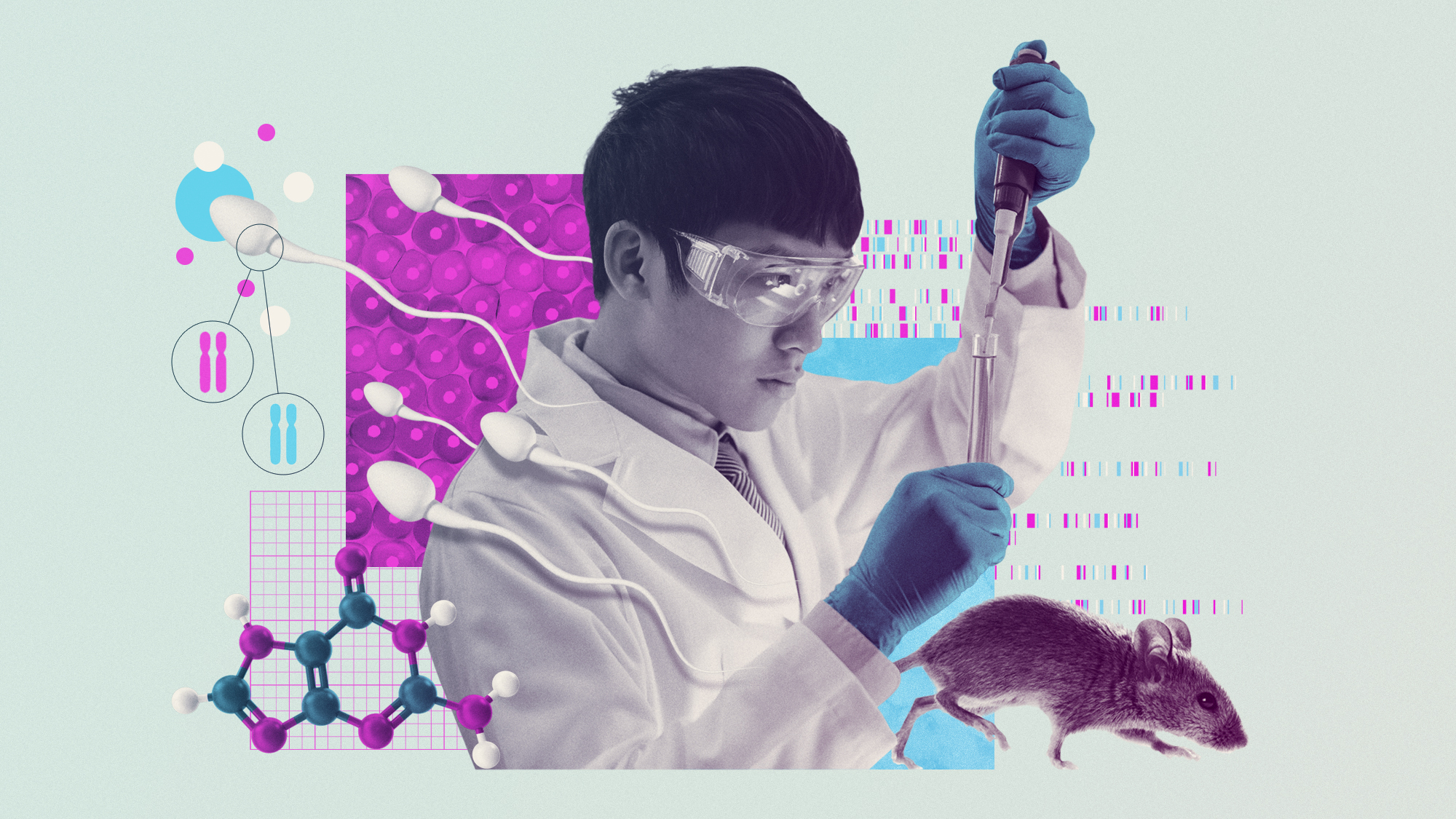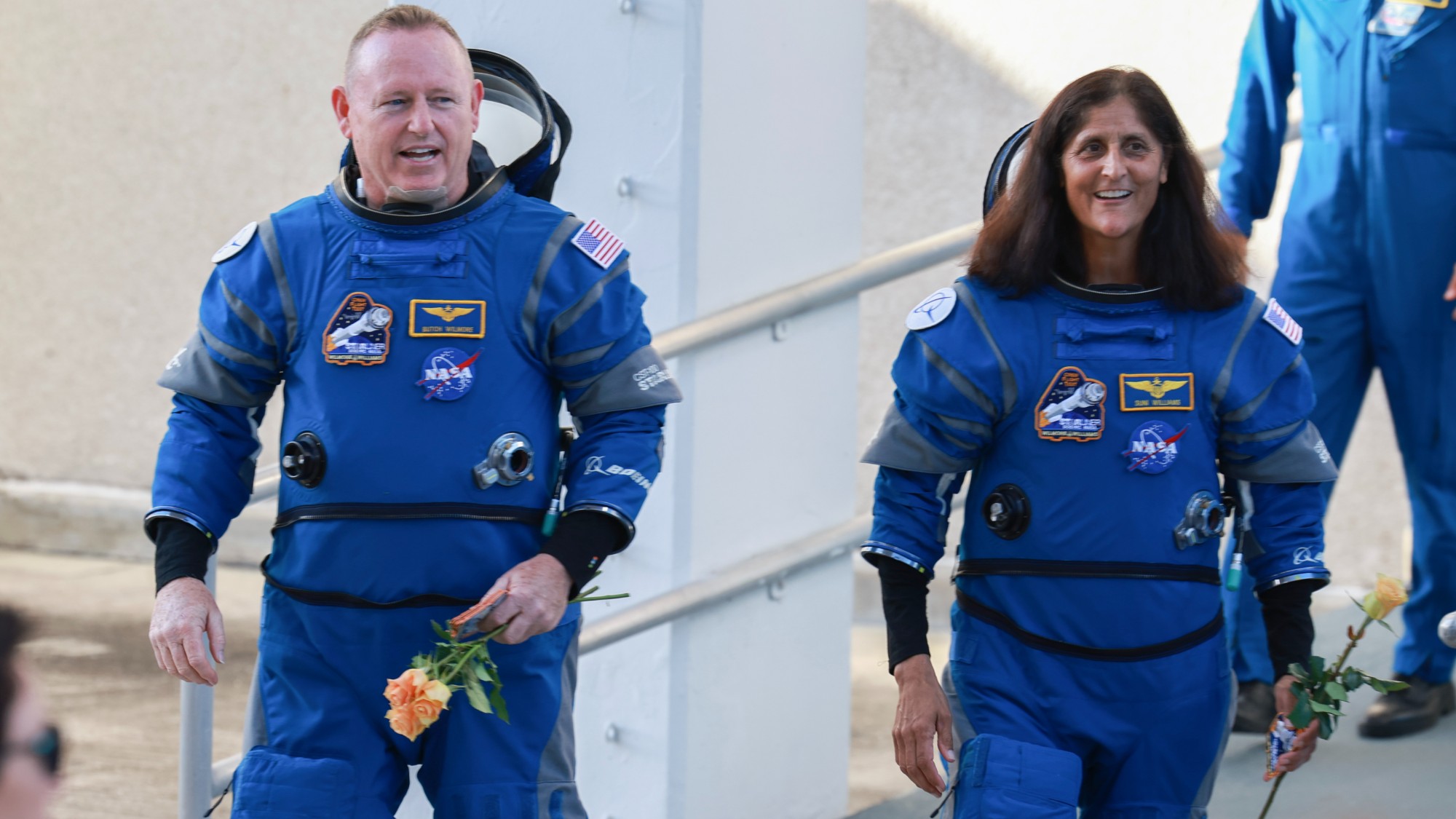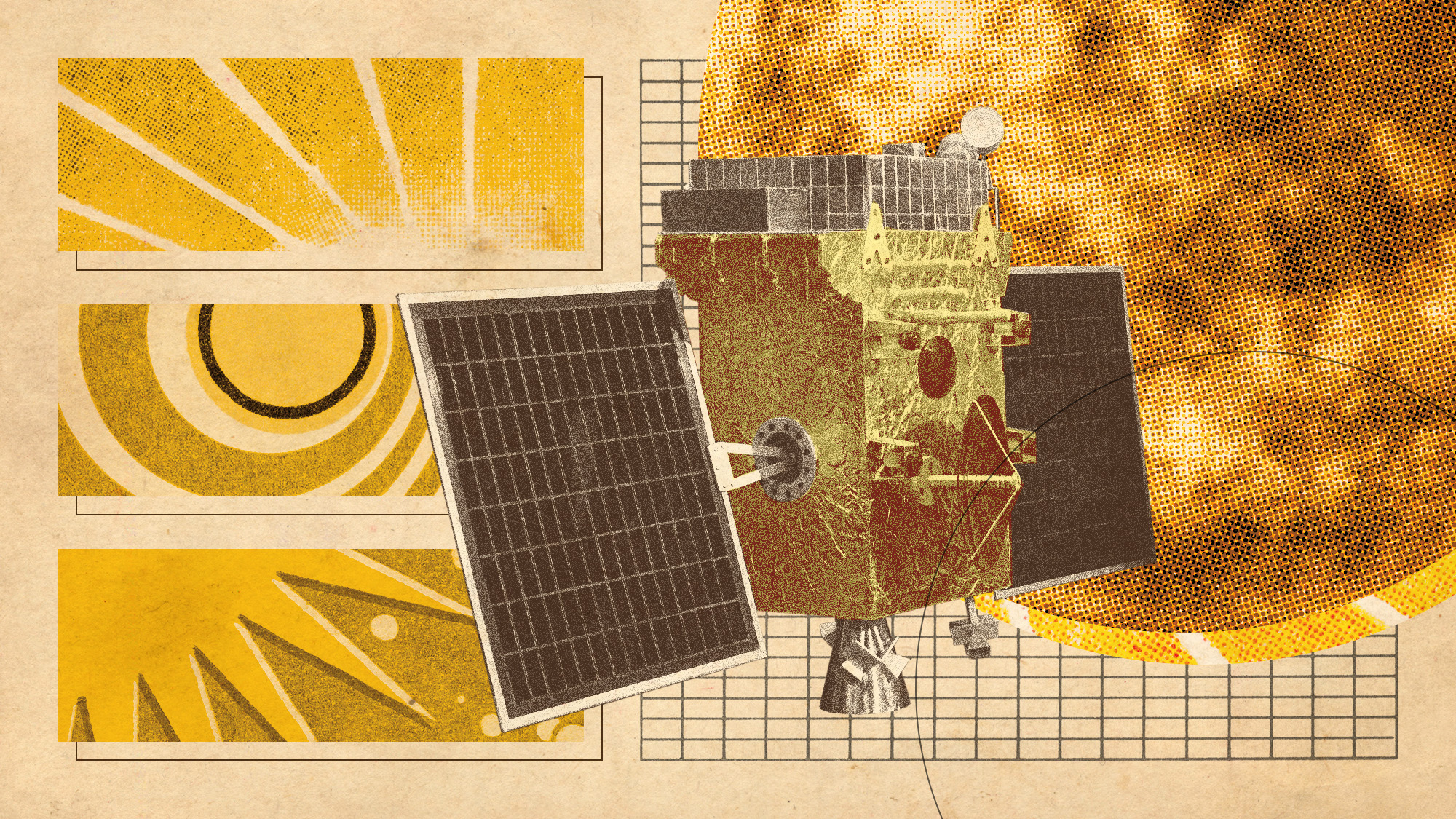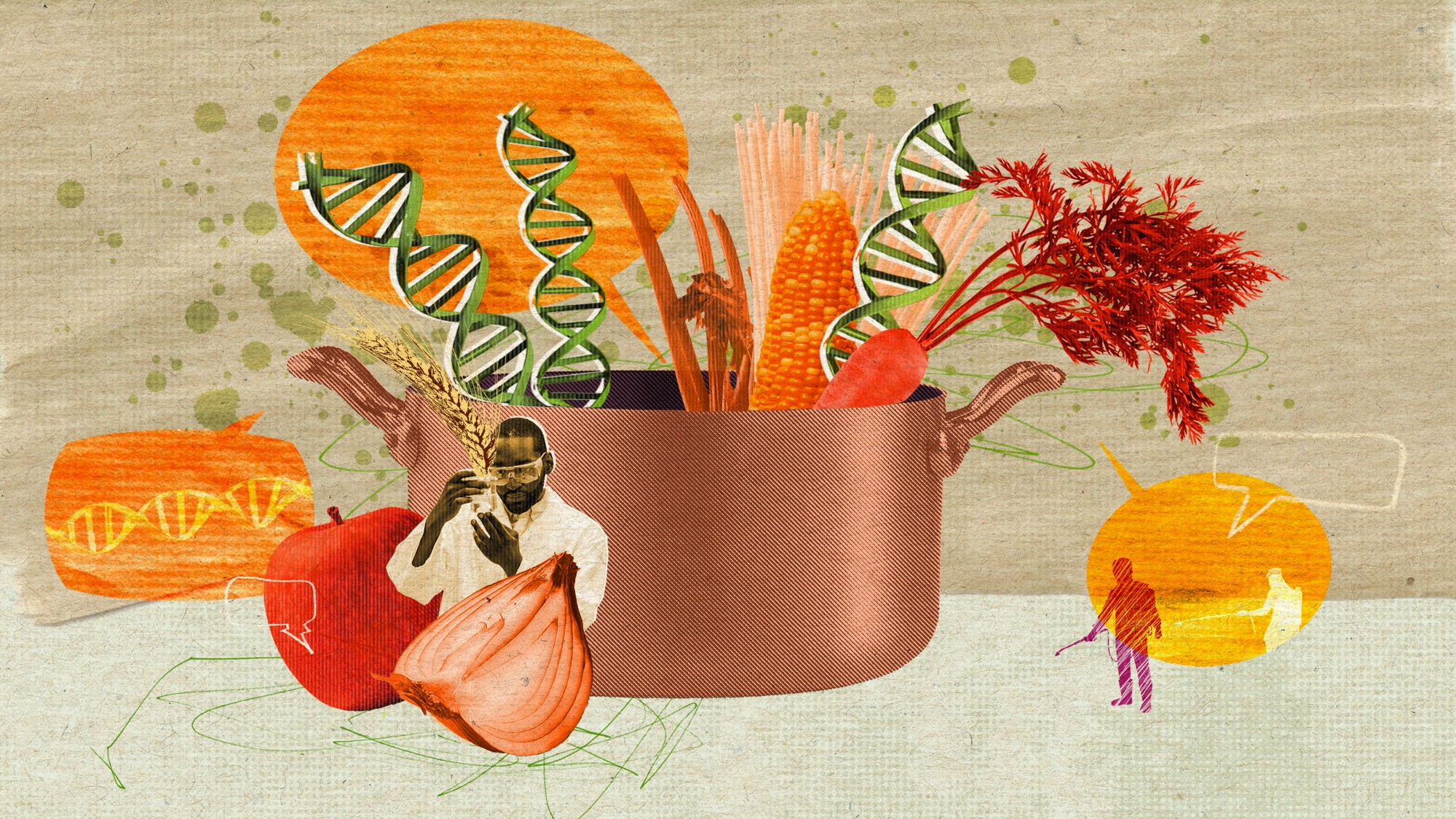Argentina's gene-edited horses
Scientists in the polo-obsessed nation have produced world's first genetically edited horses, designed to outrun champion mare whose DNA they (mostly) share

A free daily email with the biggest news stories of the day – and the best features from TheWeek.com
You are now subscribed
Your newsletter sign-up was successful
Polo is already known for its "frenetic pace" but in Argentina the sport is about to become "even quicker", said The Times.
Scientists in the polo-obsessed nation have produced the world's first genetically edited horses, modifying DNA from a champion mare using a technique called Crispr to increase "explosive speed" in her offspring, said the paper.
The five foals, born in October and November, have mostly the same genes as award-winning Polo Pureza and should inherit her natural agility, according to the biotech firm behind the project. But by tweaking a specific gene associated with sprinting, they are engineered to one day outrun her.
The Week
Escape your echo chamber. Get the facts behind the news, plus analysis from multiple perspectives.

Sign up for The Week's Free Newsletters
From our morning news briefing to a weekly Good News Newsletter, get the best of The Week delivered directly to your inbox.
From our morning news briefing to a weekly Good News Newsletter, get the best of The Week delivered directly to your inbox.
A multimillion-dollar gamble
This "futuristic experiment" dates back to 2006, a decade on from the birth of Dolly the sheep (the world's first cloned mammal), said The Washington Post.
When world-renowned polo player Adolfo Cambiaso's "beloved stallion" Aiken Cura "limped off the field, and it became clear that the horse was in his final days", he "decided to take a gamble" and asked a vet to save some of the horse's skin cells. Cambiaso then had a Texas-based laboratory clone Aiken Cura, and later repeated the process with his champion mare, Dolfina Cuartetera.
But what began as "an effort to immortalise those champions" has grown into a "massive, multimillion-dollar industry". (Argentina's President Javier Milei himself owns four clones of his deceased dog.)
In 2016, one Argentinian player rode six horses cloned from the same mare. The South American nation has "fundamentally transformed" the sport of polo, but the long-term possibilities – and risks – are "yet to be fully understood".
A free daily email with the biggest news stories of the day – and the best features from TheWeek.com
'What nature does, but faster'
In 2013, the International Federation for Equestrian Sports lifted a ban on cloned horses competing internationally, after a review found they were unlikely to have an advantage over naturally bred horses. However, gene editing is banned. Likewise, the British Horseracing Authority has banned any "gene therapy or cellular manipulation" that could give an animal an advantage, said The Times.
But Kheiron, the biotech firm responsible for the five genetically edited foals in Argentina, argues that the new horses' genes could have theoretically occurred naturally, through selective breeding or genetic mutations. That's what distinguishes Crispr from genetic modification, which introduces DNA from one species into another. This means the horses "comply with current Argentine regulations", said Reuters, because they do not count as "genetic doping or genetically modified organisms".
"There are certain muscle fibres that give it more explosiveness, a faster contraction, and the animal can have this greater explosive speed," said Gabriel Vichera, co-founder and scientific director of Kheiron.
"We are not inventing anything artificial, but rather we are taking that natural sequence and introducing it into another natural horse, which is what nature does, but we do it faster and more targeted."
Harriet Marsden is a senior staff writer and podcast panellist for The Week, covering world news and writing the weekly Global Digest newsletter. Before joining the site in 2023, she was a freelance journalist for seven years, working for The Guardian, The Times and The Independent among others, and regularly appearing on radio shows. In 2021, she was awarded the “journalist-at-large” fellowship by the Local Trust charity, and spent a year travelling independently to some of England’s most deprived areas to write about community activism. She has a master’s in international journalism from City University, and has also worked in Bolivia, Colombia and Spain.
-
 ‘Restaurateurs have become millionaires’
‘Restaurateurs have become millionaires’Instant Opinion Opinion, comment and editorials of the day
-
 Earth is rapidly approaching a ‘hothouse’ trajectory of warming
Earth is rapidly approaching a ‘hothouse’ trajectory of warmingThe explainer It may become impossible to fix
-
 Health insurance: Premiums soar as ACA subsidies end
Health insurance: Premiums soar as ACA subsidies endFeature 1.4 million people have dropped coverage
-
 Russia’s ‘cyborg’ spy pigeons
Russia’s ‘cyborg’ spy pigeonsUnder the Radar Moscow neurotech company with Kremlin-linked funding claims to implant neural chips in birds’ brains to control their flight, and create ‘bio-drones’
-
 How mice with two dads bring us closer to two men having a child of their own
How mice with two dads bring us closer to two men having a child of their ownThe Explainer Science breakthrough produces healthy, fertile mice from two sperm cells and an empty egg
-
 Scientists want to regrow human limbs. Salamanders could lead the way.
Scientists want to regrow human limbs. Salamanders could lead the way.Under the radar Humans may already have the genetic mechanism necessary
-
 Breakthrough gene-editing treatment saves baby
Breakthrough gene-editing treatment saves babyspeed read KJ Muldoon was healed from a rare genetic condition
-
 Have we reached 'peak cognition'?
Have we reached 'peak cognition'?The Explainer Evidence mounts that our ability to reason, concentrate and problem-solve is in decline
-
 Life after space: how will Nasa's stranded astronauts cope?
Life after space: how will Nasa's stranded astronauts cope?In the Spotlight Sunita 'Suni' Williams and Barry 'Butch' Wilmore are headed back to Earth after nine months on the ISS – but their greatest challenge may still lie ahead
-
 Indian space mission's moment in the Sun
Indian space mission's moment in the SunUnder the Radar Emerging space power's first solar mission could help keep Earth safe from Sun's 'fireballs'
-
 The pros and cons of GMOs
The pros and cons of GMOsPros and Cons The modified crops are causing controversy